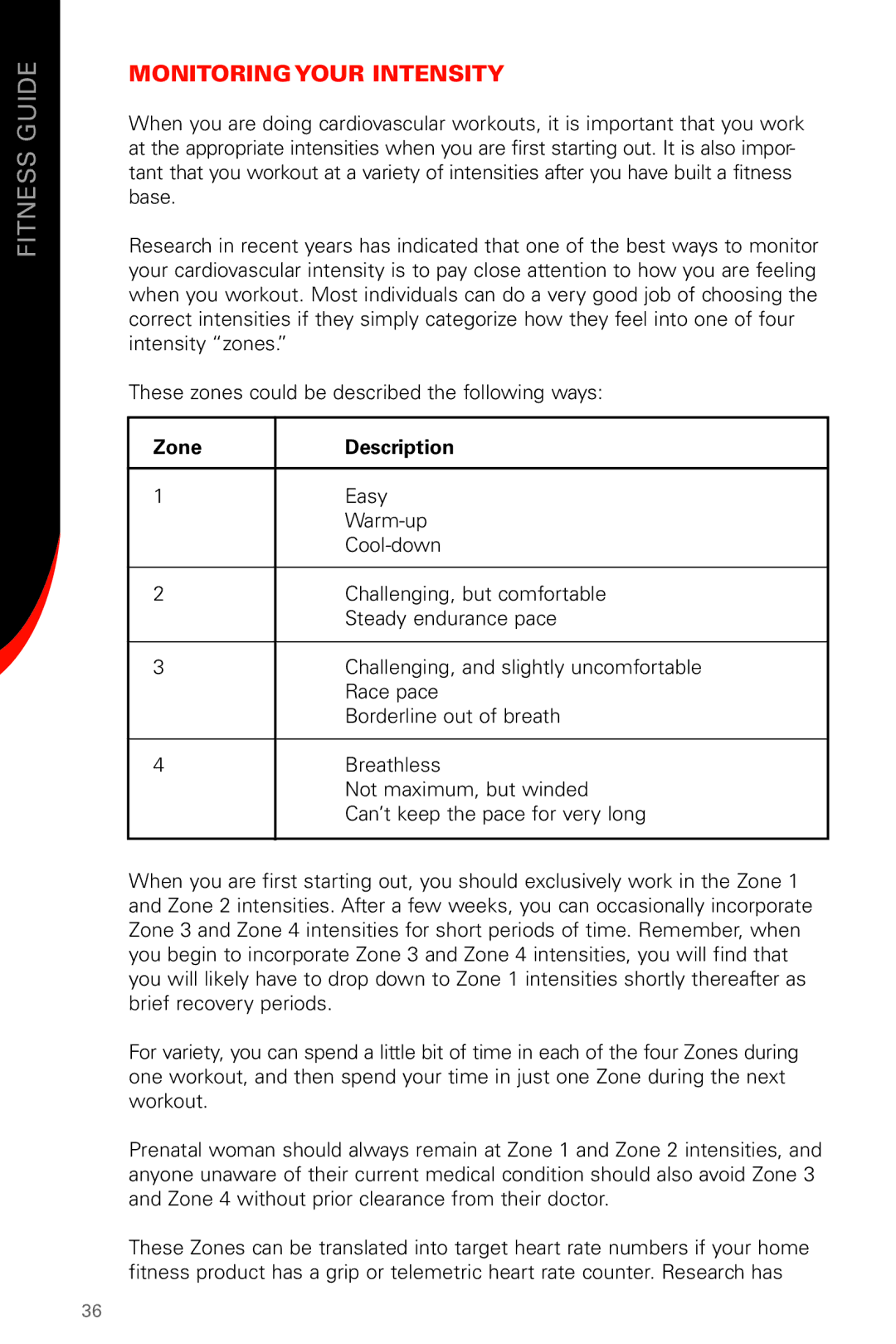FITNESS GUIDE
MONITORING YOUR INTENSITY
When you are doing cardiovascular workouts, it is important that you work at the appropriate intensities when you are first starting out. It is also impor- tant that you workout at a variety of intensities after you have built a fitness base.
Research in recent years has indicated that one of the best ways to monitor your cardiovascular intensity is to pay close attention to how you are feeling when you workout. Most individuals can do a very good job of choosing the correct intensities if they simply categorize how they feel into one of four intensity “zones.”
These zones could be described the following ways:
Zone | Description |
|
|
1 | Easy |
| |
| |
|
|
2 | Challenging, but comfortable |
| Steady endurance pace |
|
|
3 | Challenging, and slightly uncomfortable |
| Race pace |
| Borderline out of breath |
|
|
4 | Breathless |
| Not maximum, but winded |
| Can’t keep the pace for very long |
|
|
When you are first starting out, you should exclusively work in the Zone 1 and Zone 2 intensities. After a few weeks, you can occasionally incorporate Zone 3 and Zone 4 intensities for short periods of time. Remember, when you begin to incorporate Zone 3 and Zone 4 intensities, you will find that you will likely have to drop down to Zone 1 intensities shortly thereafter as brief recovery periods.
For variety, you can spend a little bit of time in each of the four Zones during one workout, and then spend your time in just one Zone during the next workout.
Prenatal woman should always remain at Zone 1 and Zone 2 intensities, and anyone unaware of their current medical condition should also avoid Zone 3 and Zone 4 without prior clearance from their doctor.
These Zones can be translated into target heart rate numbers if your home fitness product has a grip or telemetric heart rate counter. Research has
36
